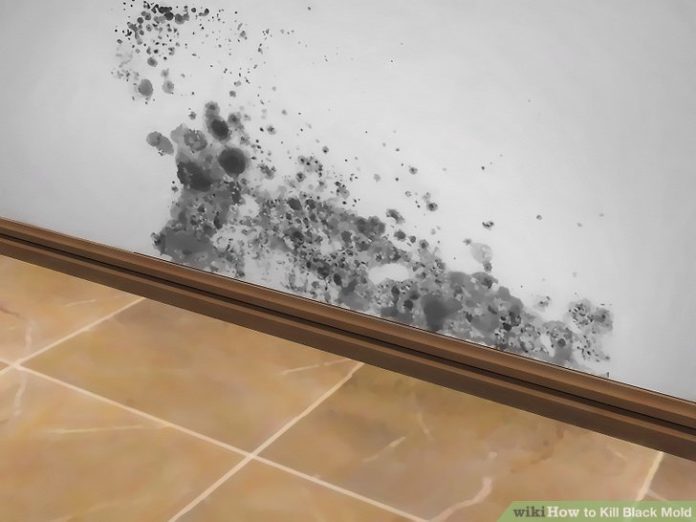Black Mould : The killer fungus
Authored by Dr. Debkishore Gupta ( Senior Consultant – CMRI)
Fungal infections very commonly occur and they are mostly effortlessly curable with proper anti-fungal treatments. But recently an entirely new infection called ‘Black mould’ has been spreading rather increasingly among humans. Unlike other curable fungal infections, ‘Black Mould’ is quite deadly. Global and Indian public health data suggests that most undiagnosed deaths occur due to fungal infections that do not get treated on time. Moreover, fungi develop resistance over time, therefore fungi that were deemed harmless a few years ago may be deadly now. Dr. Debkishore Gupta and his team have been studying the increasing deadliness of fungal infections and they are keen on talking about its prognosis and treatment. He believes that the general population should be made more aware about fungi so that early diagnosis can save lives. In the modern urban world of centrally air – conditioned offices, homes and hotels this trend is especially critical as fungi can spread through dirty air ducts. Therefore the CMRI team is keen on spreading consciousness about the same so that patients can get diagnosed faster.

Recently, the team at CMRI recently came across a rare cranial infection. This invasive fungal infection affected a female patient who eventually succumbed to the disease as she was brought to the hospital too late. The lady was suffering from uncontrolled diabetes. She was getting treated with broad spectrum antibiotics at another hospital and later got transferred to CMRI. She already had a skin lesion. This kind of lesion spreads very fast and affects the brain in no time. Due to delay in detection her condition worsened requiring instant action. At CMRI, immediately after admission a tissue biopsy was done which revealed this invasive fungal infection. The fungus even grew when cultured at the hospital lab. The exact medical term for this kind of fungus is “Invasive Zygomycosis”. Often, this devastating fungal infection is seen mostly in immunocompromised patients, leading to their rapid demise due to late diagnosis and despite treatment with anti-fungal.
Causes
ICU patients are very much prone to suffer from fungal diseases. When a patient is already immunosuppressed or has low-immunity, he or she can succumb to such infection. These fungi easily breed in air conditioner’s vent and duct. For this reason, every hospital and nursing homes should go through infection control monitoring. Ideally, every AC duct/vent should have HEPA-filter so that supply of clean air never stops. Not just hospitals, offices, hotels and all other air-conditioned public places should have regular infection control system. CMRI does air culture consistently and it has strong air screening protocols. The infection control checking of AC ductwork at CMRI is done at regular intervals under strict supervision.
Symptoms
Initial symptoms of such fungal infections are vague. Lesions at times are not visible, as they develop inside a body organ; for example inside the liver. Immediate tests should be done on the patients for fast detection of the disease. Dr. Debkishore Gupta, Senior Consultant at CMRI states, “According to the global data and information collected from PGI Chandigarh, many of the undiagnosed deaths are due to these kinds of fungal diseases. Due to lack of knowledge about these infections, the physicians initially never think of a possibility of such fungal infections without any strong evidence. When a patient is not responding to broad spectrum antibiotics then the physicians must let their patients undergo required tests for detecting fungal infections.”
Diagnosis
CT scan, Blood culture and Tissue Biopsy are must for identifying fungal infection. Histopathology will reveal irregular broad non-septate hyphae and spores pathognomonic of mucor; with evidence of surrounding neutrophilic infiltration, necrosis and vasculature invasion.
Plan of treatment
Anti-fungal medication should be given immediately. Late diagnosis will lessen the effect of anti-fungal drugs. There are two types of antifungal treatment for invasive zygomycosis.
Standard therapy: amphtericin B is a polyene macrolide which is very effective against the fungus. The duration of therapy varies from weeks to months depending on the site and severity of the infection. [1]
Experimental therapy: newer antifungal medications are being currently developed. The orally administered posaconazole, from the family of azoles, recently showed promising results against the mucorales species.
Immediate surgical intervention is the best option for survival. Removal of affected areas refrain the fungal infection from spreading and cease multiplication of organisms. Both anti- fungal treatment and surgery are very expensive.
The Calcutta Medical Research Institute is one of the very few hospitals in India, who has a competent anti-fungal team of physicians and surgeons.
[1] The Rise of Opportunistic Infection called “Invasive Zygomycosis”-https://www.ncbi.nlm.nih.gov/pmc/articles/PMC2840956/























